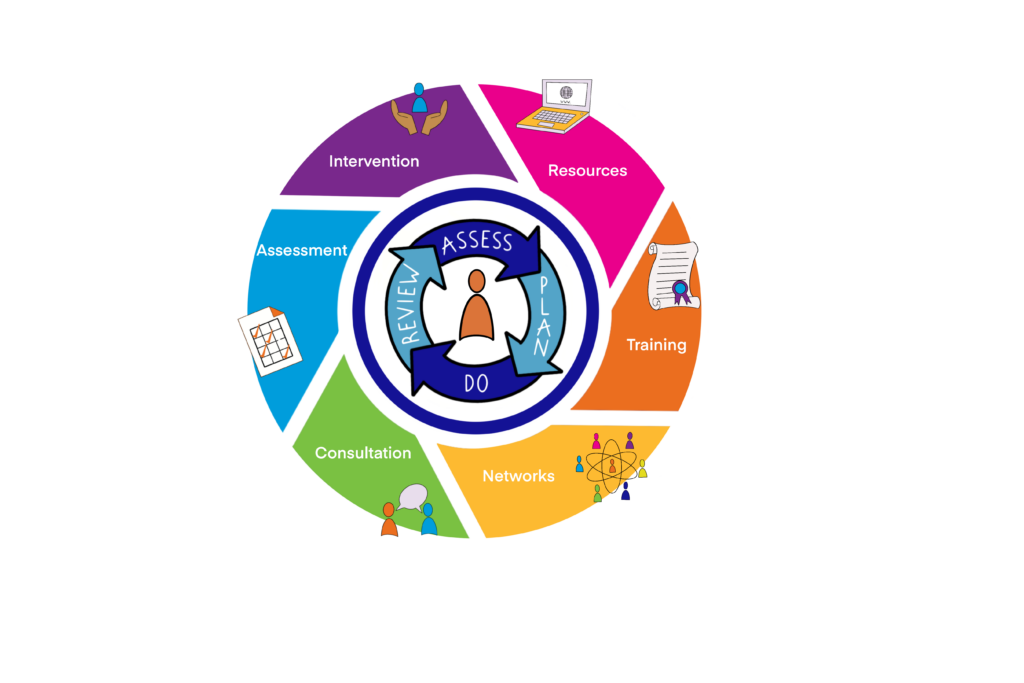Suffolk Inclusion Services support schools to deliver their Graduated Approach for children and young people with SEND in a person-centred way by delivering a range of activities known as The Graduated Response. This offer includes resources, training, networks, consultation, assessment and interventions.

SENCOs have told us that they value this offer to support their work in delivering the assess, plan, do, review process in schools. To help summarise and share the range of activities on offer we have developed this handy one page summary to remind staff of key contact information and different elements of the support offer.
This video also offers a step-by-step explanation of all the different elements and service offers within the Graduated Response.